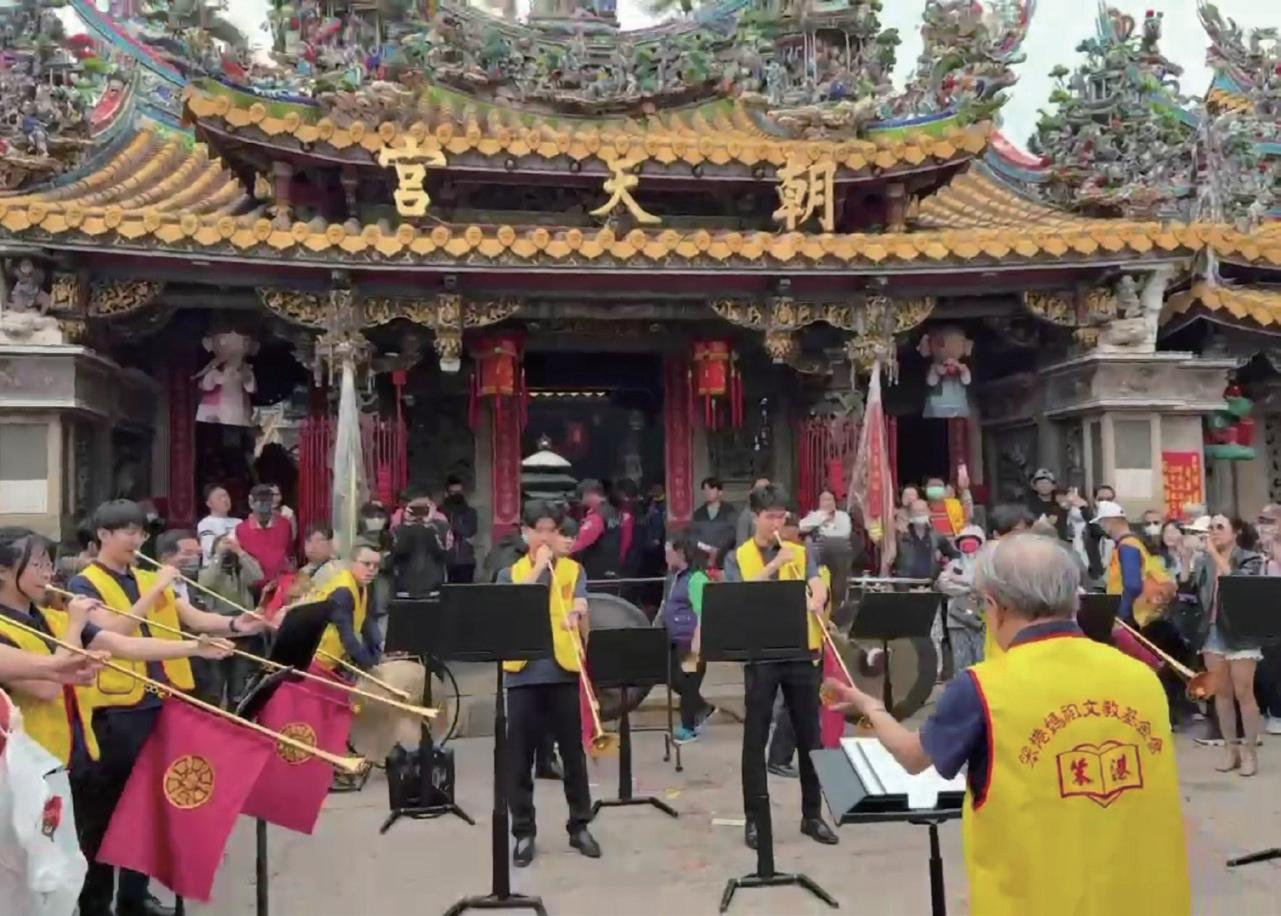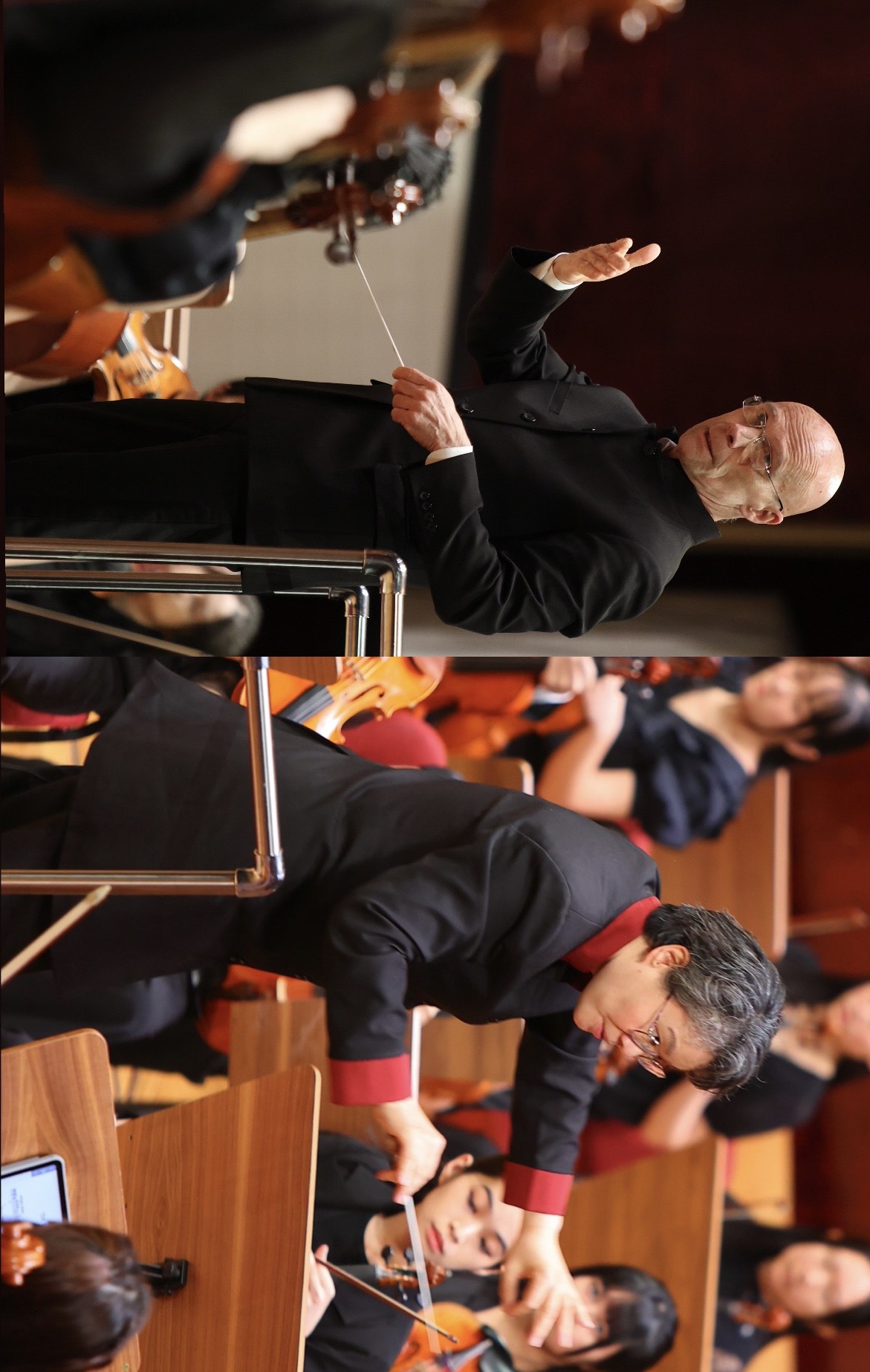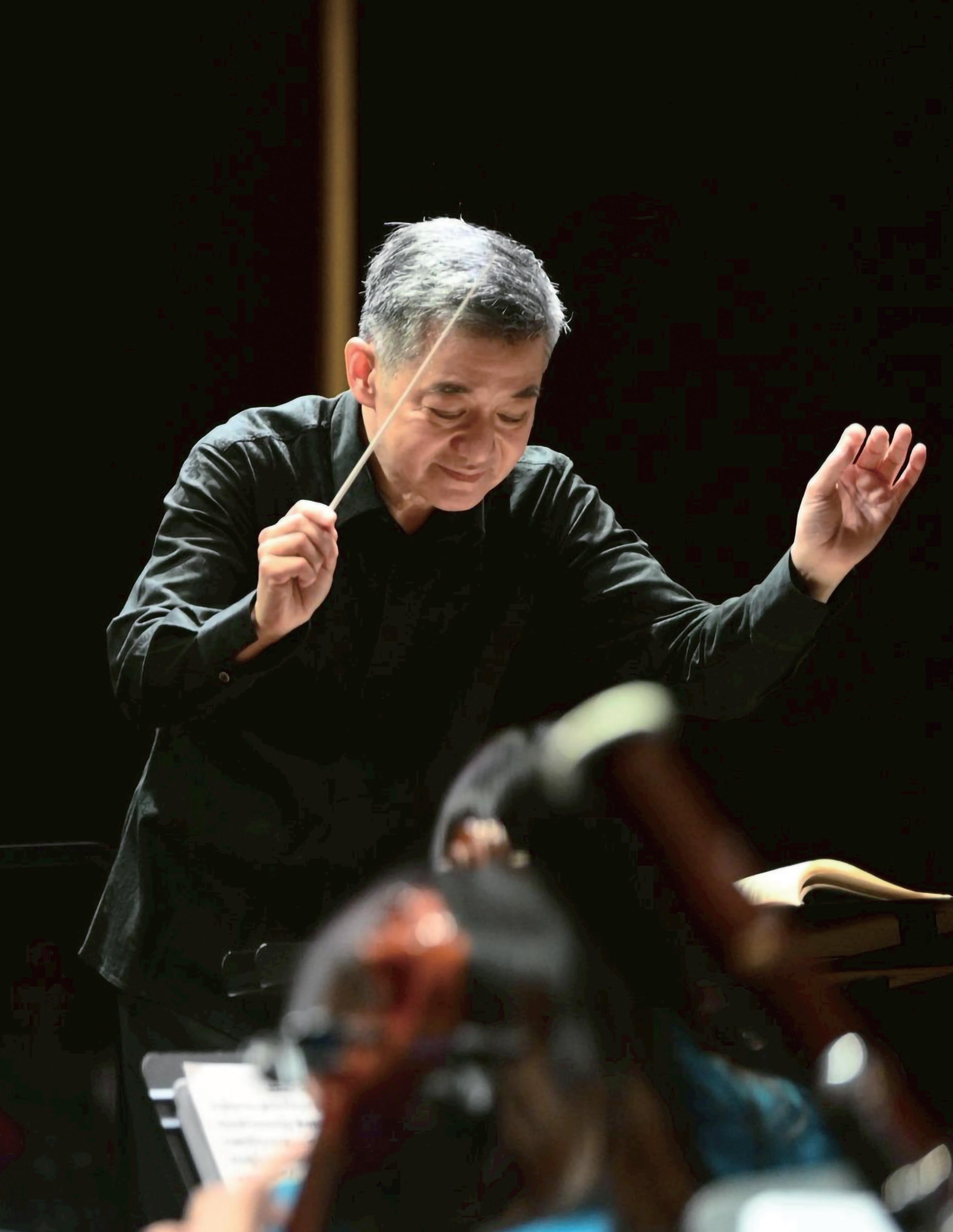
10 minute read
Archives, Algorithms, and Arpeggios
Founded in 1946, the Department of Music at NTNU is the oldest music department in Taiwan and one of its most influential. For nearly eight decades, it has shaped the music education of generations, its story closely intertwined with the island’s broader cultural development. In its early years, the department shared space with Taiwan’s first Provincial Symphony Orchestra, which rehearsed on campus, placing many of the island’s top musicians just down the hall from young students.
Today, the department is part of the NTNU College of Music, which also includes the Graduate Institute of Ethnomusicology, the Graduate Institute of Performing Arts, and the Digital Archive Center for Music. This broader academic structure reflects a vision that reaches beyond the concert stage and into research, education, technology, and cultural preservation. As Taiwan negotiates its cultural presence on the global stage, NTNU’s program is actively redefining what it means to be a musician: rooted in tradition, yet responsive to an evolving world.
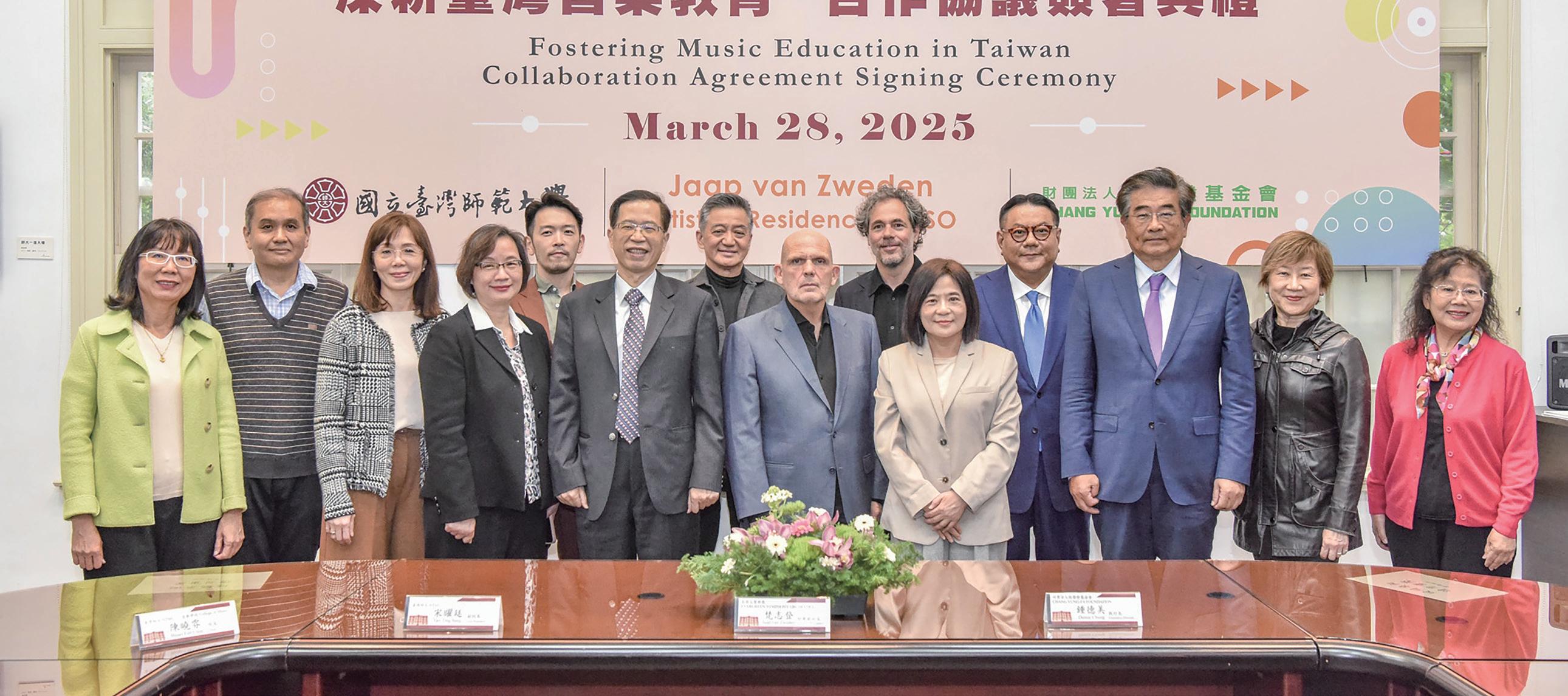
Grounded in History, Oriented Toward the Future
While the department continues to offer a strong foundation in Western classical training, its current orientation is distinctly forward-looking. “Gone are the days when music students could focus exclusively on rehearsal and performance,” said Dean Hsiao-Fen Chen. “Today’s musicians must understand the digital ecosystems that shape how music is produced, distributed, and consumed. From streaming platforms and sound editing to AI and music management, students also need to engage in interdisciplinary collaborations, whether with visual artists, writers, or filmmakers, to remain relevant in an evolving cultural landscape.”
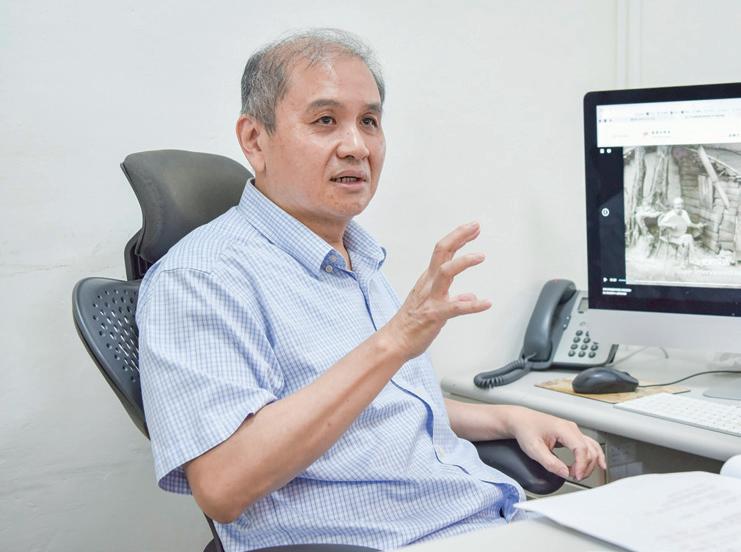
Being part of a comprehensive university is a major advantage. The music program collaborates with a range of disciplines, from music education and gerontology to the visual arts and digital media. “The strength of the NTNU music program is that it is within a comprehensive university,” said Chen. That has made it easier to innovate while staying grounded in tradition. Recent partnerships have led to immersive exhibitions with the NTNU Museum, projects in music therapy, and applied research in senior music activities.
“The department also maintains active ties with institutions like C-Lab, Dequn Gallery, and the National Culture and Arts Foundation,” said Music Department Chair Ling-Yi Ou Yang. “Our students explore sound art and improvisation while gaining digital fluency through courses in Max/MSP/Jitter interaction, 3D sound design, modular synthesis, and spatial acoustics.”
Students at all levels benefit from this multidimensional environment. In addition to undergraduate and graduate degrees in performance, composition, conducting, musicology, and music education, the College of Music also offers the Music-Assisted Guidance and Special Education Credit Program and the Master’s Degree Program in Interdisciplinary Studies in Music and Technology. These programs allow students to explore career paths in creative industries and multimedia production alongside traditional performance-based study.
One recent collaboration further underscores the emphasis on professional readiness. In early 2025, NTNU signed a three-way memorandum of understanding with the Evergreen Symphony Orchestra and its resident conductor, Jaap van Zweden. The partnership offers orchestral internships, masterclasses, and live performance experience. Van Zweden conducted his first-ever Taiwan masterclass with the NTNU Symphony Orchestra and led a rigorous audition process that selected twelve students for Evergreen’s professional training program. The initiative gives students a direct view of orchestral life while also supporting community outreach efforts to bring music education to underserved regions.
A Global Orientation with Local Commitments
The College of Music at NTNU is among the university’s most internationally engaged academic units. It maintains active partnerships with leading institutions including Stanford University, Seoul National University, the University of Music and Performing Arts Vienna, and Deutsches Museum. According Ou Yang, the music department currently offers more than 32 EMI courses across bachelor’s, master’s, and doctoral levels, taught by 8 faculty members experienced in English-medium instruction. “Our goal is to provide a learning environment that balances academic rigor with global accessibility,” she said, adding that teaching assistants also support international students in EMI courses to navigate coursework and enhance interaction.
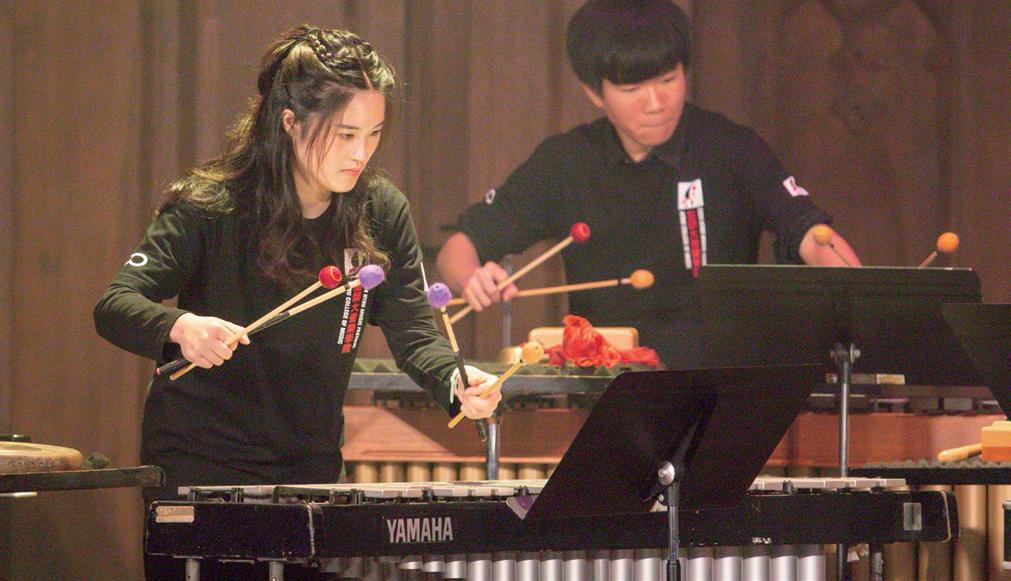
Recent collaborations reflect the College of Music’s commitment to both innovation and heritage. This past spring, NTNU partnered with Stanford’s Center for Computer Research in Music and Acoustics (CCRMA) for a modular synthesis workshop and a 3D soundscape lectureconcert led by CCRMA Director Chris Chafe and system design expert Fernando López-Lezcano. That partnership culminated in a summer workshop at CCRMA for students from NTNU’s music and computer science departments.
Through the Fulbright Foundation, the Graduate Institute of Ethnomusicology also welcomed Audiovisual Archivist Dave Walker from the Smithsonian Center for Folklife and Cultural Heritage, who led a hands-on workshop in audio preservation and conservation, offering students access to global best practices in sound archiving.
“The College of Music has always seen its strongest competition come from overseas,” said Dean Hsiao-Fen Chen. “Many of our applicants also receive offers from top international institutions.” Yet international engagement, she emphasized, is not about emulating global trends. “We aim for what I call a ‘glocal’ approach of connecting globally while remaining rooted in Taiwan’s multicultural musical identity.”
That philosophy underpins ongoing faculty research, including a project in collaboration with the Deutsches Museum that explores early twentieth-century Sinophone musical heritage through rare Chinese instruments from the Datong Music Society.
Ethnomusicology professor Yu-Hsiu Lu echoed this dual focus. “As a young musician, I studied the Western canon. But when I left Taiwan to study in the West, I realized that we need to know who we are, and what our music brings to the table.”
While the Western repertoire remains foundational, NTNU encourages students to write original compositions and reinterpret local traditions, especially when performing internationally. “There are still relatively few Taiwanese compositions and arrangements presented on global stages,” said Chen. “It’s important that students learn to create works that resonate broadly, rather than being purely experimental.”

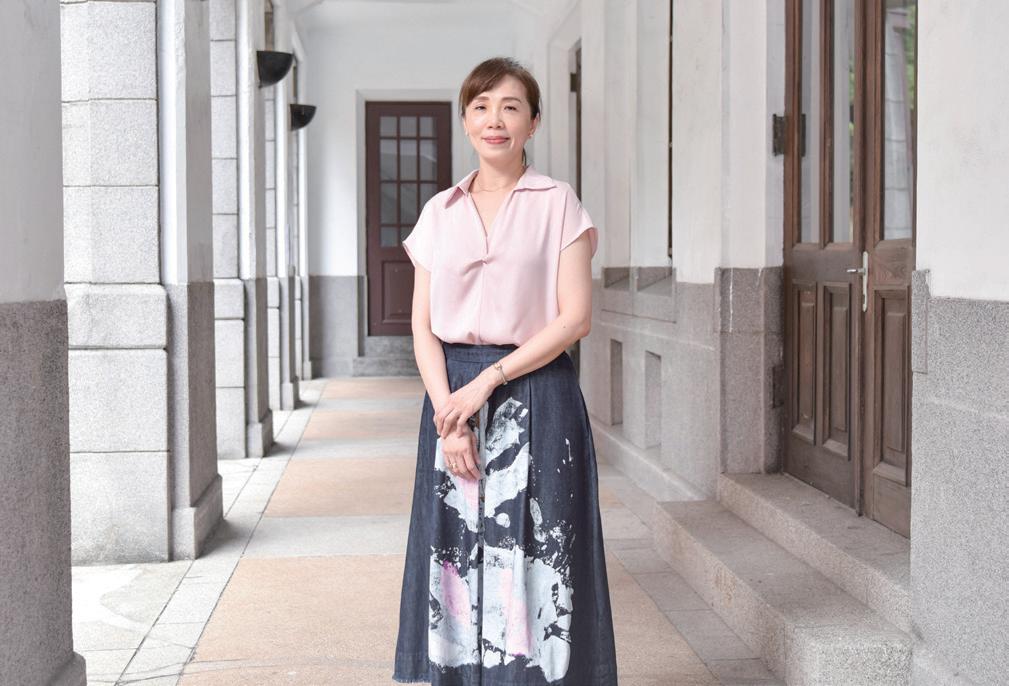
Reclaiming History: The Archive as Living Practice
NTNU is home to one of Taiwan’s most significant music archives, particularly in ethnomusicology, field recordings, and Indigenous musical traditions. Through the Graduate Institute of Ethnomusicology and the Digital Archive Center for Music, the university has developed a comprehensive repository that supports preservation, research, and public engagement.
Among its most notable holdings are the “Osterwalder Tapes,” a set of 56 reel-to-reel recordings made in 1967 by NTNU professors Wei-liang Shih and Tsang-Houei Hsu, with support from Swiss-German priest Alois Osterwalder. Long presumed lost, the tapes were rediscovered in Germany and returned to Taiwan in 2013.
Department Director Professor Chun-Zen Huang, an expert in sound restoration, was connected with Osterwalder in 2013. Before agreeing to release the tapes, Osterwalder requested a detailed conservation plan. After securing approval, Huang traveled to Germany and brought the collection back to NTNU. Recognizing the vulnerability of the analog media in Taiwan’s humid climate, he and his team trained at the Phonogrammarchiv of the Austrian Academy of Sciences to ensure proper handling and digitization.
The original tapes are now stored in climate-controlled facilities at the National Archives, with digital versions accessible to researchers by request.
But preservation is only the beginning. “Our purpose is not only to preserve, but to present,” said Huang. Each year, graduate students select one cultural group from the collection as the basis for their thesis. Under the guidance of Professor Yu-Hsiu Lu, students verify and document the recordings through fieldwork, community consultation, and ethnographic research. Lu also helps secure funding for these projects and oversees the production of annotated CDs, which are available upon request to anyone with an interest in the recordings.


The most recent project focused on the Bunun people. Graduate students Pei-Jie Yang, who completed her degree in May 2025, and Kaying Kainga Qalavangan spent over four years working with Bunun communities in the central mountains to confirm names, lyrics, and cultural context. Yang described the experience as both emotionally and physically demanding. “Some of these communities are quite remote, and the communities are wary of yet another group of outsiders,” she said. For Qalavangan, whose heritage is Bunun, the challenges were more personal. “The elders assumed I would intuitively understand or know about the culture of my ancestry,” she explained. “But I’m a couple of generations removed. I relied on my mother’s childhood memories, and the support of a young Bunun local to gain access and understanding.”
Their work culminated in a public concert that began with the original 1967 recordings, followed by reinterpretations from tribal elders and new compositions by NTU System students. Under the mentorship of Assistant Professor Ling-Hsuan Huang, these pieces blended Indigenous soundscapes with digital technologies and instrumentation, demonstrating how archival material can inspire creative renewal and cultural dialogue.
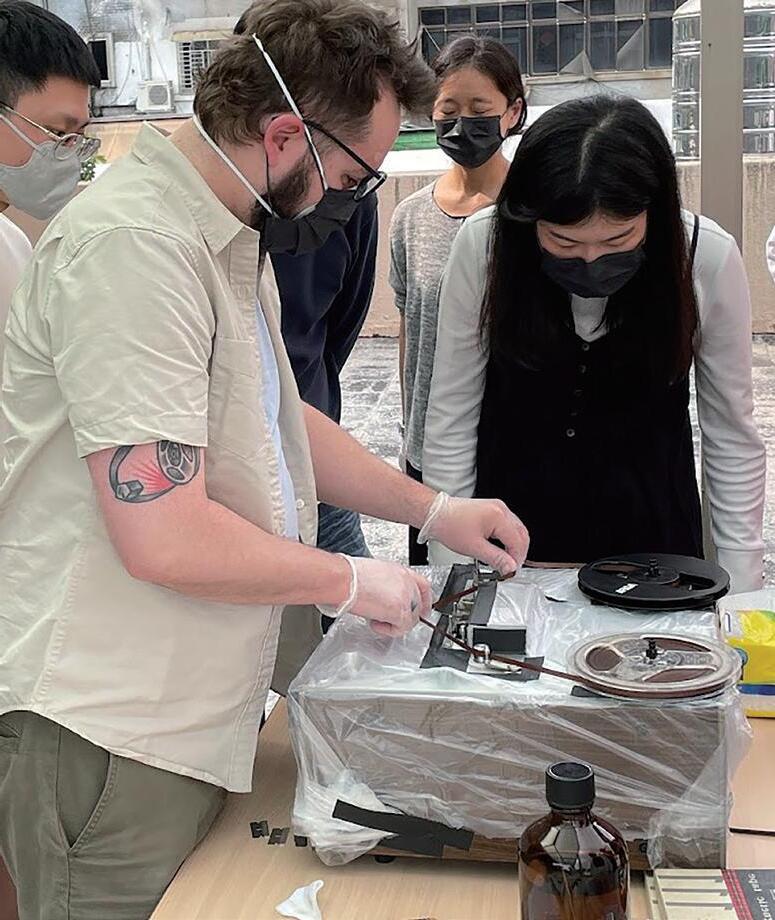
A Culture of Engagement
NTNU’s music students are involved not only in performance and scholarship but also in community engagement. For decades, the department has brought orchestral demonstrations to rural schools, hosted interactive music sessions for Indigenous children, and performed across campuses and communities. Lunchtime concerts at Wenhui Hall, flash performances in public spaces, and annual concerts at NTNU’s historic auditorium are all part of the rhythm of life on campus.
One recent initiative, “Shaw-chiao 2.0,” reintroduced a ceremonial horn traditionally used in temple processions. The project included instrument redesign, new commissions, and community workshops, helping reconnect younger audiences with older traditions in a contemporary context.
Reimagining Musical Education
What NTNU offers is more than a place to study music. It is a space where music is interrogated, contextualized, and put into conversation with technology, society, and culture. Students are expected to master their instruments, but also to think critically about what their practice contributes to the world around them.
“It’s not enough to just be technically excellent,” said Chen. “You must know how to communicate, how to collaborate, and how to create meaning across cultures and across disciplines.”
In that spirit, the NTNU College of Music continues to reimagine the role of music education for the future. Its students leave not only as performers and composers, but as educators, curators, researchers, and creative practitioners—shaping what music means, and what it can become.
